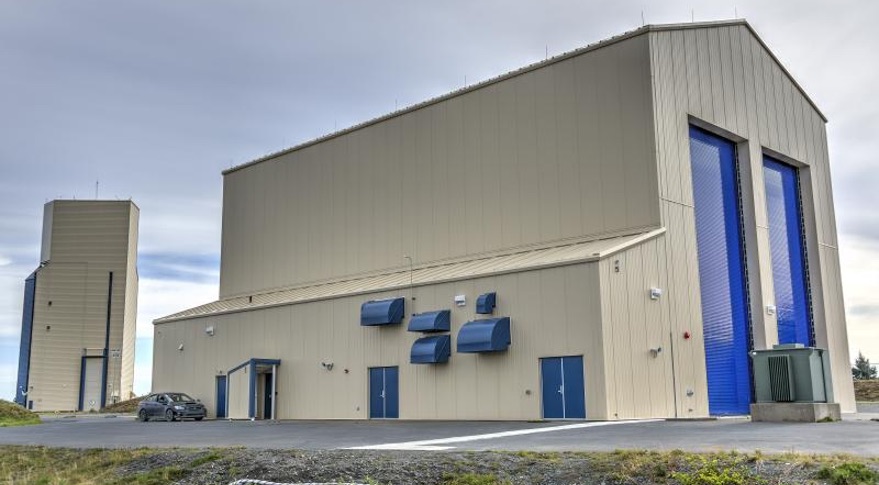A veil of secrecy over the launch from Alaska
- Transfer

Buildings of the Pacific Launch Complex on Kodiak Island, Alaska. Source: Alaska Aerospace Corp.
WASHINGTON - On July 20, a Californian company performed a suborbital launch from a spaceport in Alaska; and now, a week later, something became clear: in spite of the dense clouds from the Pacific Launch Complex on Kodiak Island, Alaska, the launch rocket 1 from Astra Space was launched at six in the evening EST.
In March of this year, Astra Space received a license to conduct suborbital test flights from the Office of Commercial Space Transportation (AST) of the Federal Aviation Administration (Federal Aviation Administration, FAA). According to the issued permit, the launch vehicle started in a southerly direction and carried a second-dimensional mass-dimensional mockup; In this regard, the FAA issued a warning about the closure of the area for aviation flights from July 14 to 21 inclusive.
Surprisingly, the event did not appear in the list of licensed launches.on the agency’s website, although the list already contains later launches, both orbital and suborbital. A statement issued by the FAA on July 24 in response to a request from SpaceNews states that the launch took place, but some “overlays” occurred.
"Launch Astra Space, Inc. from the Pacific Launch Complex on Kodiak Island last Friday, July 20, ended in failure, ”the agency reports,“ Since it is licensed by the FAA, we are going to get acquainted with the final results. ”
The Pacific Spaceport - mainly known as the Kodiak Complex - is operated by Alaska Aerospace Corporation. Craig Campbell, President and CEO of Alaska Aerospace, was interviewed on July 27 by SpaceNews, but warned that his ability to discuss the details was limited to a non-disclosure agreement.
“Our client prefers that we do not discuss his affairs with the press,” he explains. “I can confirm that the launch took place, and they were generally satisfied.”
At the same time, Campbell did not mention any "overlays" or other related incidents. “While the data is being processed, I can only say that we have not suffered any material damage,” said Craig. “And we expect that Astra Space will continue to use our space center.”
Astra Space is one of the many offices that have appeared over the past year, developing light carriers for the output of small satellites; however, it stands out with a rare secrecy - not even a public web resource. At least it is certain that the company is based in Alameda, California, renting the territory of a former military air base from the city. The lease documents indicate the activity of “providing services of launching a new generation” using an Astra rocket capable of delivering up to one hundred kilograms of cargo to a low reference orbit.
Other operators are also interested in the Kodiak complex. Shortly before the Rocket 1 cosmodrome, Vector representatives visited to conduct a series of preliminary tests for their Vector-R PH, the test flight of which is scheduled at the end of this year. Probably, Rocket Lab will settle here later - according to their statement, Alaska became one of the four finalists in the qualifying competition for the second site for the company, and in August the first Electron will start from here.
